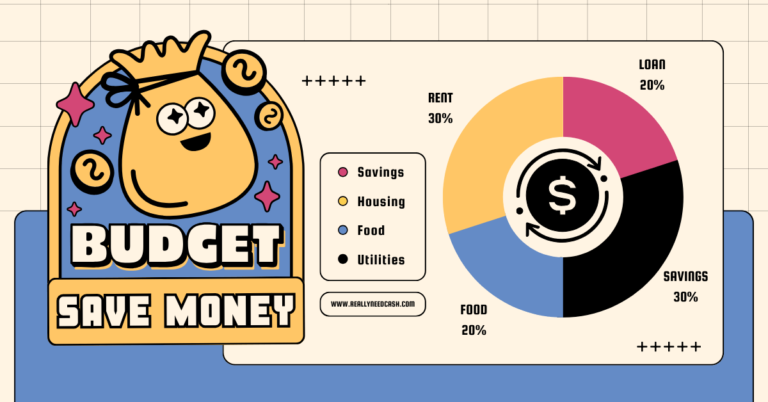Financial planning success involves leveraging strategies such as “Money Dates” for regular financial discussions, prioritizing experiences over material possessions, and practicing “Financial Feng Shui.” Other key tactics include strategic spending, cultivating side hustles, and a Value for money Barter system.
15 Strategies for Financial Planning Success
- Leverage the “Money Dates” Strategy
- Invest in Experiences, Not Just Things
- Embrace “Financial Feng Shui
- Practice “Strategic Splurging”
- Cultivate a “Side Hustle Garden
- Implement a “Money-Free Weekend” Routine
- Adopt a “Subscription Audit” Mindset
- Master the Art of “Strategic Re-Gifting”
- Engage in “Financial Vision Boarding”
- Embrace “Strategic Bartering”
- Utilize “Financial Feng Shui”
- Practice “Strategic Splurging”
- Cultivate a “Side Hustle Garden
- Implement a “Money-Free Weekend” Routine
- Adopt a “Subscription Audit” Mindset

1. Money Dates Strategy
I find that scheduling regular “money dates” with my partner or myself is a great way to review our finances, set goals, and celebrate our financial wins.
It’s like setting aside dedicated time to focus on our financial well-being and strengthen our money management skills.
These dates help us stay aligned on our financial priorities and make sure we’re both on the same page when it comes to money matters.
2. Invest in Experiences, Not Just Things
I’ve also learned that allocating a portion of my budget to experiences that create lasting memories and personal growth is truly valuable.
Instead of focusing solely on material possessions, I prioritize activities and adventures that enrich my life and create meaningful stories.
3. Financial Feng Shui
I personally believe in arranging my financial space to promote abundance and prosperity. By keeping my financial documents organized and clutter-free, I create an environment that fosters financial clarity and positive energy.
It’s like setting the stage for financial success by maintaining a harmonious and organized financial space.
4. Strategic Splurging
Occasionally indulging in high-quality items that bring long-term value and joy, rather than making frequent small purchases, is a strategy I’ve adopted.
It’s about making intentional and thoughtful purchases that align with my long-term goals and bring genuine happiness.
5. Side Hustle Garden
I’ve found that diversifying my income streams by nurturing multiple side hustles or passion projects boosts my financial resilience.
6. Money-Free Weekend Routine
Challenge yourself to enjoy a weekend without spending money, which fosters creativity and resourcefulness.
7. Subscription Audit Mindset
Regularly evaluating and trimming unnecessary subscriptions and services frees up funds for more meaningful expenses.
8. Strategic Re-Gifting
Thoughtfully repurposing items I no longer need reduces waste and saves on gift expenses.
At the same time, I can also minimize unnecessary expenses and contribute to a more sustainable and thoughtful gift-giving culture.
9. Financial Vision Boarding
Creating a visual representation of my financial goals and aspirations helps me manifest them into reality.
You can see it as crafting a personalized roadmap that keeps me motivated and focused on achieving your financial dreams.
10. Strategic Bartering
Do you have an old Xbox that you haven’t used in a while?
Exchanging goods or services with others to fulfill needs without spending money fosters community connections and resourcefulness.
11. Financial Feng Shui
By keeping your financial documents organized and clutter-free, you create an environment that fosters financial clarity and positive energy.
12. Strategic Splurging
Who doesn’t enjoy an occasional dinner date or a vacation?
Occasionally indulging in high-quality items that bring long-term value and joy, rather than making frequent small purchases is a strategy I’ve adopted. It’s about making intentional and thoughtful purchases that align with your long-term goals and bring genuine happiness.
13. Side Hustle Garden
Having just one income source is risky unless you have tons of savings or investments elsewhere.
What happens if that source goes away tomorrow? I can’t imagine the situation.
Diversifying your income streams by nurturing multiple side hustles or passion projects can boost your financial resilience.
14. Money-Free Weekend Routine
Just like the song Sia – Cheap Thrills “I don’t need dollar bills to have fun tonight”
Challenge yourself to enjoy a weekend without spending money, fostering creativity and resourcefulness.
Why not go on a mini adventure to discover low-cost or free activities that bring joy and relaxation?
15. Subscription Audit Mindset
I still have tons of subscriptions but I am trying to get it down myself too.
Are you traveling and don’t need to watch TV? Cancel your Netflix subscription.
Trimming unnecessary subscriptions and services can free up funds for more meaningful expenses.
These strategies have been instrumental in shaping my financial planning journey, and I hope they can provide valuable insights for your own path to financial well-being.
Increase Your Cash Flow
A cornerstone of sound financial planning is understanding your cash flow. It means not only tracking your income but also scrutinizing your expenses with the precision of an eagle-eyed accountant.
To optimize your cash flow, analyze your spending habits thoroughly.
Are there subscriptions or services that you barely use?
Could you be dining out less often?
By examining these patterns, you can better allocate your resources towards savings and investments.
The goal is to ensure that the outflow never eclipses the inflow, except in well-justified circumstances.
Crafting a Resilient Budget
Crafting a budget is akin to charting a map for your financial journey. It should be resilient and adaptable to life’s ever-changing scenarios.
A well-structured budget encapsulates not only your regular expenses but also anticipates occasional splurges and unforeseen costs.
It’s like packing an umbrella for sudden showers – it ensures you’re prepared. To create such a budget:
- Categorize your expenditures
- Prioritize essential spending, and
- Set aside a portion for emergencies and leisure.
This balance between discipline and flexibility is key to sustaining your financial well-being.
Investing Wisely
When it comes to growing your wealth, the magic lies in investing.
The landscape of investment is vast, from stocks and bonds to real estate and mutual funds.
Like a gardener choosing seeds, selecting the right investment requires research and patience.
Diversifying your portfolio spreads risk and potential reward across different assets. Remember, investing is not a sprint; it’s a marathon.
A long-term perspective coupled with due diligence will bear fruit over time, helping you build a more secure financial future.
Preparing for Retirement
The golden years of retirement may seem like distant horizons, yet time tends to slip away like sand through fingers.
Therefore, preparing for retirement should commence as early as possible. Contributing to retirement accounts such as a 401(k) or an IRA can be a monumental step towards a serene retirement.
Like nurturing a tree whose shade you plan to enjoy later, paying attention to your retirement funds now will ensure they grow steadily over the years.
Managing Debt Effectively
Managing existing debt is a fundamental aspect of financial planning.
It’s essential to adopt a strategy that prioritizes repayment of high-interest debts, which often act as chains dragging down your financial progress.
Why don’t you use techniques like debt snowball or avalanche methods, and always keep communication open with creditors?
Remember, the quicker you free yourself from debts, the sooner you can focus on building your financial future.
Protecting Your Assets
It includes having adequate insurance coverage, whether it’s health, home, auto, or life insurance. Moreover, estate planning ensures that your assets are distributed according to your wishes and provides peace of mind knowing that your loved ones are taken care of.
As we navigate through our financial lives, it’s important to remember that while seeking opportunities like online payday loans may appear as quick fixes during tough times, they aren’t conducive to long-term financial stability.
Instead, strategic financial planning should aim at creating a solid foundation that stands firm against economic tides.






